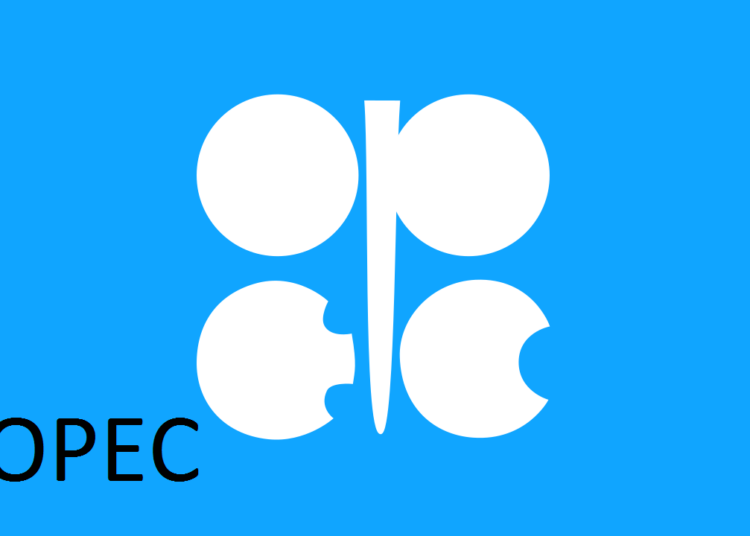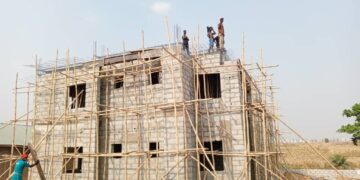The Organization of Petroleum Exporting Countries, OPEC, has maintained forecasts for strengthening oil demand in the second half of the year, as the group and its allies prepare to revive some halted supplies.
World oil consumption will see a year-on-year increase of 2.3 million barrels a day, MMbpd in the second half, about 150,000 bpd more than during the first, amid continued economic growth in China and other emerging economies, OPEC said in a monthly report. The estimates are considerably more bullish than others in the industry.
Led by Saudi Arabia, OPEC and its partners unveiled a plan earlier this month to start gradually restoring roughly 2 MMbpd of shuttered production from October. Prices initially slumped on the decision, but recouped losses as the coalition stressed that the hike could be postponed or called off.
Crude prices traded near $81 a bbl in London, down about 12 per cent from a peak reached in April, as
OPEC’s supply restraints struggle to counter a flood of new oil from the Americas. China’s fragile economy and uncertainty over U.S. monetary policy have also caused concerns about the strength of demand.
OPEC’s data indicate that the group and its allies should easily be able to manage the supply restart without destabilising global markets or causing inventories to pile up. It projects that the full 22-nation OPEC+ alliance will need to provide 43.6 MMbpd in the third quarter, or about 2.7 MMbpd more than it pumped last month.
But estimates from the organisation’s Vienna-based secretariat are based on an assessment of demand that’s far stronger than most other forecasters.
OPEC forecasts that world consumption will swell by 2.2 MMbpd this year — almost 50 per cent higher than the rate anticipated a few months ago by Saudi Arabia’s state-run oil company.
The organisation expects demand will average 104.5 MMbpd in 2024.
For the first quarter, OPEC estimates that global oil consumption soared by 2.3 MMbpd, more than double the increase observed by the International Energy Agency, an adviser to major economies in Paris.
OPEC’s forecasts have proved excessively bullish in the past. Last year, the group’s data pointed to a record inventory crunch of more than 3 MMbpd in the fourth quarter. Instead, crude prices slumped 19 per cent and the alliance was compelled to announce deeper production cutbacks to shore up the market.
Meanwhile, Nigeria’s daily oil production dipped further to 1.25 million barrels per day in May, a report by the Organisation has said.
This is despite the claim by the Federal Government and the Nigerian National Petroleum Company Limited that the country’s oil production has risen to 1.7mbpd.
OPEC data showed that Nigeria lost 30,000bpd as crude production dropped from 1.28mbpd in April to 1.25mpd in April.
The NNPCL Group Chief Executive Officer, Mele Kyari, stated that crude production was nearing 1.7mbpd at the time.
Kyari, who spoke during a stakeholders engagement between the Nigerian Association of Petroleum Explorationists and the NNPCL held in Lagos, said, “As of today’s data, we’re inching to 1.7mbpd. We won’t celebrate this. On 17th of April 2020, our production, without doing anything, without drilling new wells, shot to 2.2mbpd. The difference was COVID-19. The thieves, the vandals, everybody went to sleep.”
But in its Monthly Oil Market Oil Report for May 2024, OPEC said it gathered from direct communication with the OPEC member country that Nigeria’s oil production had further gone down, though the figure stood at 1.42mbpd from data gathered from secondary sources.
Nigeria’s dwindling daily oil production turned the corner in April, rising marginally from 1.23 million barrels per day in March to 1.28mbpd, according to OPEC.
OPEC said Nigeria’s oil production added 50,000 barrels daily in April after it fell in recent times.
The nation’s crude production fell from 1.32 million barrels per day in February to 1.23 million barrels per day in March.
Production dropped from 1.427mbpd in January to 1.322mbpd, according to direct sources.
The continuous drop in production came amid stakeholders’ concerns over the loss of revenue due to the failure of the government to ramp up production.
The Petroleum Technology Association of Nigeria, PETAN chairman, Wole Ogunsanya, joined stakeholders to reveal that the country was losing a lot of revenue daily due to its inability to tackle dwindling oil production.
Ogunsanya, said if Nigeria could retain between 60 and 70 per cent of the oil and gas value chain in the country, it stands a better chance of being among the top 20 economies in the world.
He pointed out that the country was underproducing to the tune of at least 500,000 barrels per day, which was a huge loss to the country.
However, the federal government said the drop in Nigeria’s crude oil production was due to issues encountered on the Trans Niger Pipeline, coupled with maintenance activities carried out by some oil companies operating across the country.
Government said there are ongoing efforts to fix the pipeline to enable the country to produce up to 1.7 million barrels per day of crude oil and condensates.
The minister of State for Petroleum Resources (Oil), Heineken Lokpobiri, claimed that the drop in production was due to issues encountered on the Trans Niger Pipeline.
In response to recent concerns regarding a shortfall in oil production in Nigeria during the first quarter of 2024, Lokpobiri, assures (Nigerians) that measures are being taken to address the situation to, not only restore production to previous levels but to also increase it.
The minister clarifies that the reported production shortfall was primarily due to issues encountered on the Trans Niger Pipeline, coupled with maintenance activities carried out by some oil companies operating in Nigeria.
The minister claimed the issues have been adequately addressed, and production is expected to return to its previous levels in the coming days.
Lokpobiri , also said that idle oil wells and licences would be revoked and handed over to individuals with proven capacity to produce.
The federal government said it is ready to attract investors to the oil and gas sector by reducing front entry barriers, one of which is the reduction of signature bonus from around $200m to $10m.





